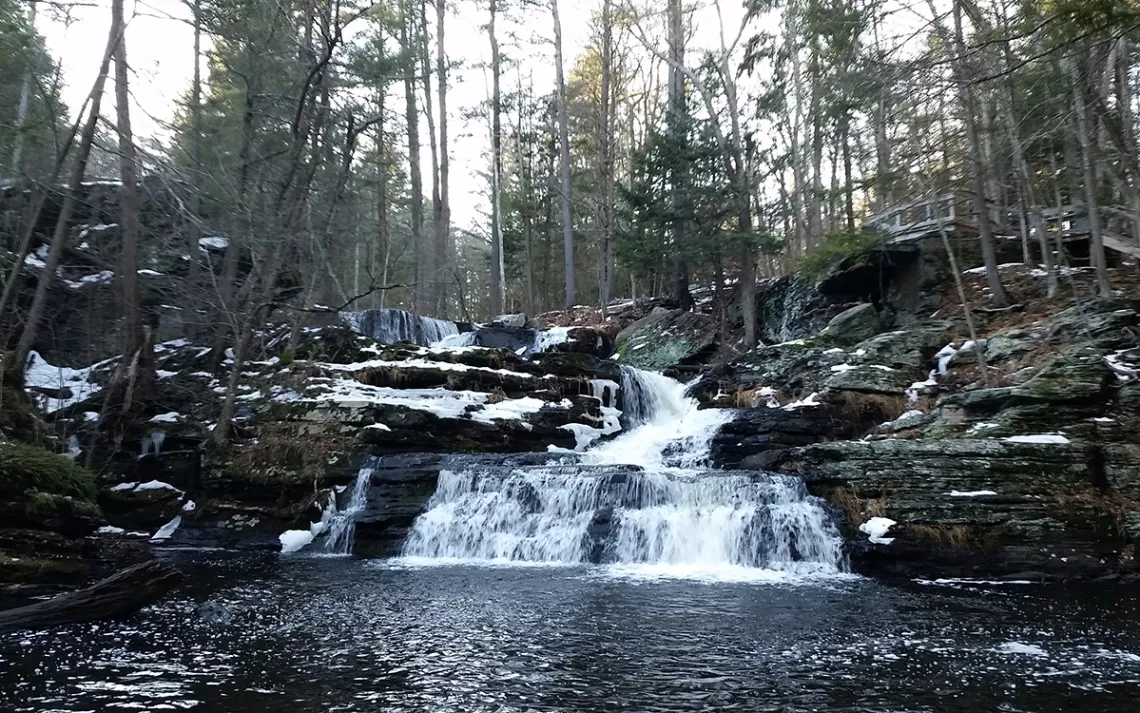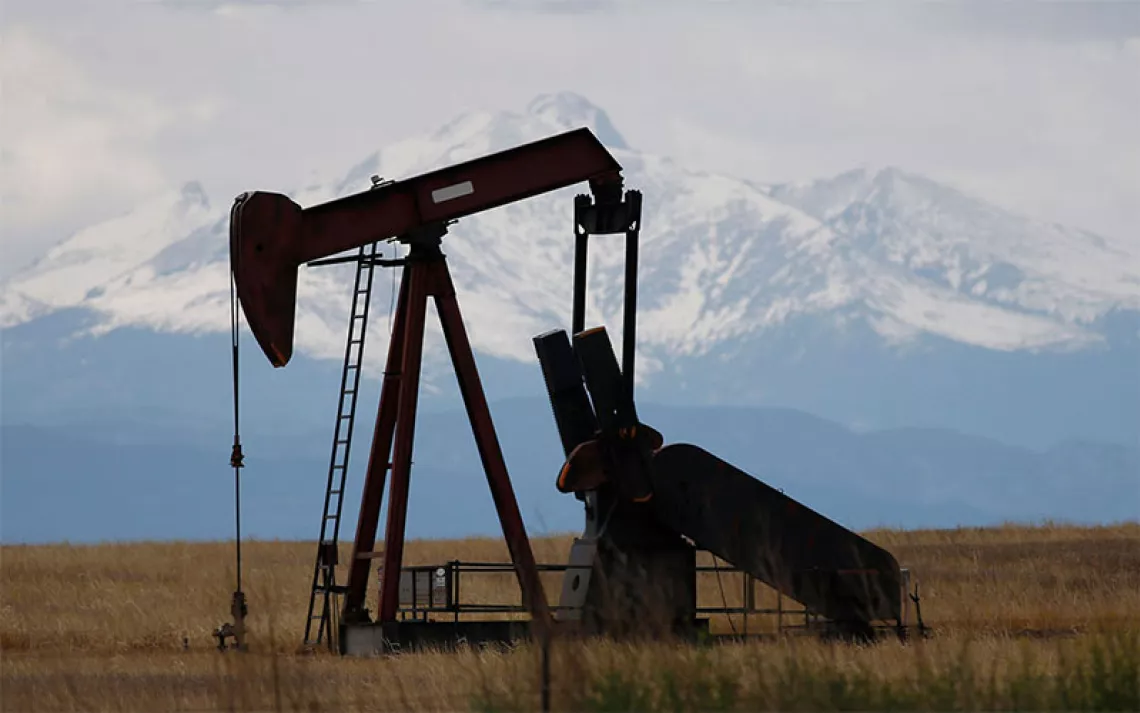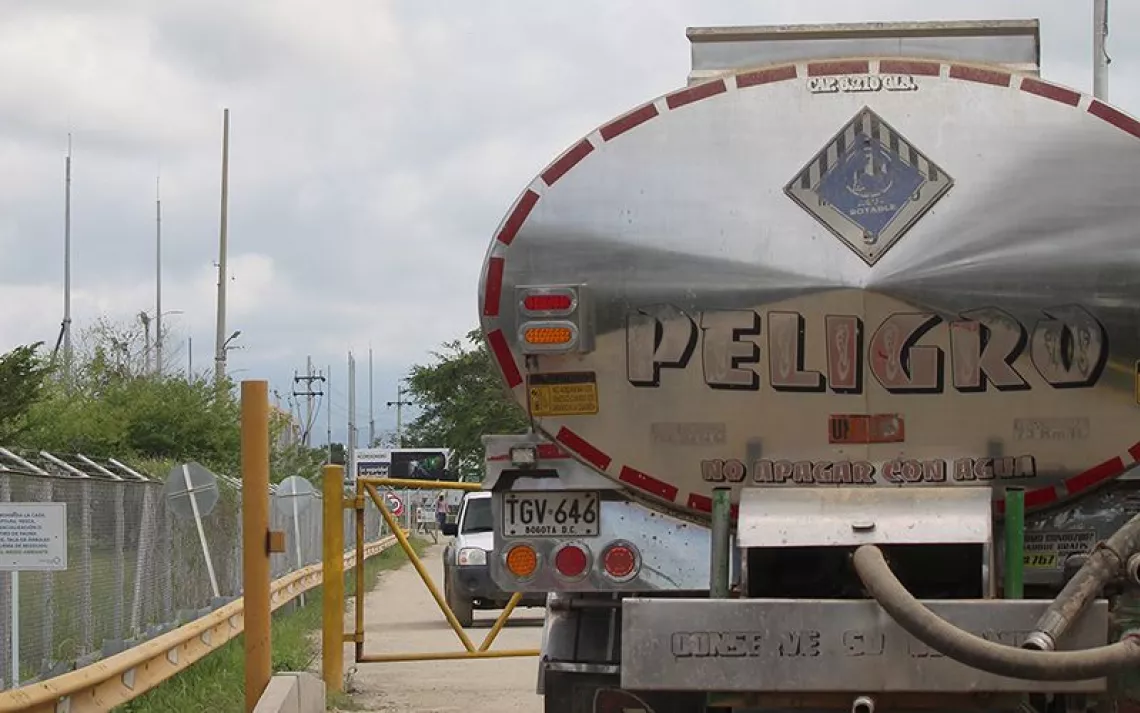The Delaware River Basin Commission Bans Fracking
A huge win for clean water in Delaware, New Jersey, New York, and Pennsylvania

Photo courtesy of the Sierra Club Pennsylvania Chapter.
The Delaware River Basin, a 13,539-square-mile watershed that cuts through Delaware, New Jersey, New York, and Pennsylvania is now off-limits to fracking. In late February, the five-member Delaware River Basin Commission—the interstate government agency that oversees the basin—voted 4–0 to permanently ban the extraction of methane gas in the region. The decision comes a decade after the commission authorized a de facto moratorium on well construction and follows other fracking bans across the East Coast, marking a historic win for anti-fracking activists. The state commissioners—the governors of each state—all voted in favor of the ban. The federal commissioner abstained.
"I welcome this opportunity to provide the fullest protection to the more than 13 million people who rely upon the Delaware River Basin’s waters for their drinking water,” said Delaware governor John Carney before the vote.
Fracking, also known as high-volume hydraulic fracturing, is the process of shooting pressurized water mixed with sand and other chemicals into bedrock to release gas. After reviewing various studies and research reports on the potential impacts of fracking on the basin, the commission determined that fracking carries too high of a risk of contaminating drinking water. Fracking fluids are likely to leak into the groundwater, it found, and the Marcellus and Utica shale formations that sit below the river basin contain faults and fissures that may provide additional pathways for methane to migrate upward once the drilling occurs.
“This ban will protect billions of gallons of drinking water and thousands of acres of forest from fracking wells,” said Jeff Tittel, director of the Sierra Club's New Jersey Chapter. “It also means that there won’t be pipelines built to take that gas to the market, protecting even more land and water.”
The decision to ban fracking permanently in the Delaware Basin has been more than 10 years in the making. The commission began its discussions on regulating the gas industry in response to Pennsylvania's shale gas boom in 2008 and proposed regulations to halt drilling as early as 2010. The proposal was controversial, resulting in tense public hearings, and the vote was put on hold after former Delaware governor Jack Markell announced that he would vote no. During the stalemate, landowners in Wayne County sued the commission, arguing that it lacked the authority to ban drilling. The lawsuit was dismissed, and in 2017 the commission updated draft regulations that authorized a permanent ban on fracking in the basin.
The fracking ban, however, did not prohibit external natural gas companies from dumping their fracking wastewater into the basin, nor from taking water from the basin for fracking. Seeking a complete ban of all types of fracking activities in the basin, Rachel Rosenfeld, online organizer for the Sierra Club’s Pennsylvania Chapter, founded the Water Defenders campaign.
“It was either all or nothing,” Rosenfeld told Sierra. “If you're going to pollute our water with fracking wastewater, which is terribly dangerous for human health, then we're still at risk.”
The main objective for the Water Defenders’ campaign was to put public pressure on Pennsylvania governor Tom Wolf to vote for a complete fracking ban on the basin, a source of drinking water for 5.6 million residents of the state. To this end, Rosenfeld organized members of the Lehigh Valley to participate in the Delaware River Basin Commission’s public hearings on fracking. Hundreds of people expressed their concerns over health outcomes and the loss of natural landscapes. Three years later, Water Defenders, alongside organizations such as the Delaware Riverkeeper Network and the Catskill Mountainkeeper, finally saw their advocacy efforts bear fruit in a unanimous second vote that requires the executive director of the DRBC to develop regulations that may potentially prohibit the transfer of water and wastewater to and from the basin.
“We were really surprised to hear that Wolf joined in support given that fracking is such a big occurrence throughout Pennsylvania, especially in the southwestern and middle parts of the state,” Rosenfeld said. “We’re really excited to see that this was a priority, and we hope that this sets a precedent for the rest of Pennsylvania.”
Her excitement, however, is not universal. Trade groups that represent the gas industry oppose the ban. David Callahan, the president of the Marcellus Shale Coalition, said that the vote “defies sound science” and that he is “extremely disappointed” by Governor Wolf’s willingness to ally with “out of state interests.” Gene Barr, the president of the Pennsylvania Chamber of Business and Industry, called the ban a major loss for the state’s energy industry.
“Overall, this is an incredible win,” Rosenfeld said. “It’s a watershed moment, a turning point for our water in Pennsylvania and a move toward a 100 percent renewable energy future.”
 The Magazine of The Sierra Club
The Magazine of The Sierra Club



